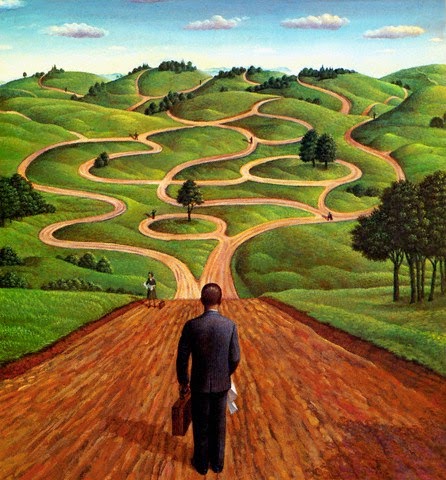This morning I had a conversation
with a friend of a friend in the publishing business. (May I just say, I can’t wait to edge out
that middle “friend” and have my own direct contacts for these things.) She was giving me some advice to help me get
my book published, and there was a refreshing realism to what she told me. A few years ago, if I had been told that much
of the burden of marketing and selling my books would fall on me, I would have
felt sick to my stomach. I would have
expected the news that it would take another few years at least before I could
see my book in print would depress me for days.
Instead, it’s given me a new determination. I don’t want people to tell me how easy it
will be, that it will just happen and all my dreams will come true at
once. I know the world better now, and I
understand that it’s going to take some hard work. I find myself excited as well as nervous at
the thought of reaching out with my book, offering what I have to the
world.
There is one thing that bothered me,
however, while we were talking. As soon
as I told this contact what my book was about, she introduced me to a new
phrase that I was unfamiliar with, but which rather defines itself: “niche
genre.” In this case it refers to
science fiction, though I imagine fantasy would be considered the same. I don’t like this phrase. To me, it implies readers who sit at home
alone with this book, unwilling to bring it out with them for fear of another’s
critique. It implies genres which are
not “widely accepted”, which most people don’t read. Niche genres are the nerds of the written
world, watching by the sidelines while the cool kids—“literary” works. What does that even mean?—stride by.
I’ve faced this struggle for years. I have a deep and abiding love for my alma
mater, Hollins, but it was there that I first faced this prejudice, as I
consider it. I was attending a summer
camp at Hollins when I met with negative feedback for the first time. I remember mentioning my interest in writing
fantasy, and I can see even now the old professor’s eyes angling downward, hear
his sigh. “I don’t consider fantasy and
science fiction to be literature,” he said.
It broke my little
thirteen-year-old-heart, scarred me so that for years I couldn’t bring myself
to turn in my “real” work to workshops.
Oh, I etched out a few short stories set in this world, but to say truth
I found them boring. My heart was in the
explorations I made into other worlds, in magic and wizards and unicorns, in
spaceships and other planets and the endless possibilities of the future. Somehow this fascination made me a fringe
member of my writerly community, even though I could see dozens of others who
were just as interested as I was. Our
numbers, however, didn’t seem to matter—we were still the niche, not the main
stage.
Now I ask you: why is it this
way? Why, when I tell people that I
write science fiction and fantasy, do I feel a sinking in my stomach, thinking
that any interest they show after that revelation will be mere politeness? Why do I feel that the vast majority of my
acquaintance will not be interested in my work?
Why did my contact this morning automatically dismiss my novel as “entertainment”? (She didn’t mean to offend, of course, and
would most likely be horrified to hear I took it that way, but even so.) She told me that niche genre work doesn’t
have to be artistic, that artistry is not what these publishers look for. I ask you, why is that so, when fantasy and
science fiction are not concerned with the world as it is, but as it could be? There is so much opportunity in these genres,
chances to make real what could never be in our lifetimes. My novel explores the very nature of what it
means to be human, from the point of view of a character who is not human. Where will you find that in a “literary”
novel? And for heaven’s sake, why can’t
my sci fi book be literature?
I think it’s past time that I put my
foot down on this matter. My book is
beautiful—I say that with modesty, feeling as I do that the story didn’t come
from me but through me, emerging from the very fabric of human experience. I say again that my book is beautiful, as are
many science fiction and fantasy books that I have spent my life devouring, and
they do not deserve to be dismissed out of hand. They are entertaining, yes, but they are also
poetic and insightful and carefully, lovingly crafted. They provide an opportunity for readers to
broaden their minds beyond the confines of this world, to see the possibilities
of humankind, and that is something that’s sorely needed. And if that is not enough to make it “literature”,
then I think it’s about time for that word to be redefined.

